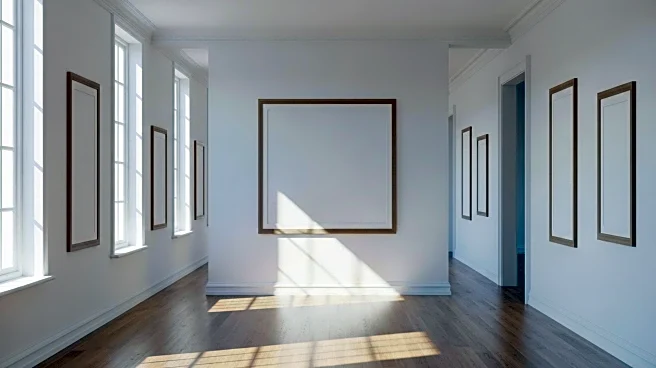What is the story about?
What's Happening?
Tilton Gallery, a prominent art gallery located on the Upper East Side, has announced its closure following the upcoming Ruth Vollmer exhibition. This marks the end of more than four decades of programming. The gallery, known for its significant contributions to the art community, will transition to focus on private projects and research after the exhibition concludes. The decision to close comes amidst a series of changes within the art industry, including the opening of new galleries and shifts in leadership positions across various institutions. The closure of Tilton Gallery is part of a broader trend of transformation within the art world, as galleries adapt to new market conditions and explore different operational models.
Why It's Important?
The closure of Tilton Gallery signifies a notable shift in the art industry, reflecting broader changes in how galleries operate and engage with the public. As galleries like Tilton move towards private projects, it may indicate a trend towards more exclusive and personalized art experiences. This shift could impact artists, collectors, and art enthusiasts by altering the accessibility and visibility of contemporary art. Additionally, the transition may influence the economic dynamics of the art market, as galleries explore new revenue streams and business models. The closure also highlights the evolving landscape of the art industry, where traditional gallery spaces are increasingly complemented by digital platforms and private exhibitions.
What's Next?
Following the closure, Tilton Gallery will focus on private projects and research, potentially setting a precedent for other galleries considering similar transitions. The art community may see an increase in private exhibitions and collaborations, as galleries seek to maintain relevance and financial stability. Stakeholders, including artists and collectors, may need to adapt to these changes by exploring new avenues for showcasing and acquiring art. Additionally, the closure may prompt discussions within the art industry about sustainable business practices and the future role of galleries in promoting contemporary art.
Beyond the Headlines
The closure of Tilton Gallery raises questions about the cultural and ethical implications of shifting from public exhibitions to private projects. This transition may affect the democratization of art, as access becomes more limited to those within certain networks. Furthermore, it could influence the cultural landscape by prioritizing exclusive experiences over public engagement. The move also underscores the need for galleries to balance commercial interests with their role as cultural institutions, fostering dialogue and accessibility within the art community.















